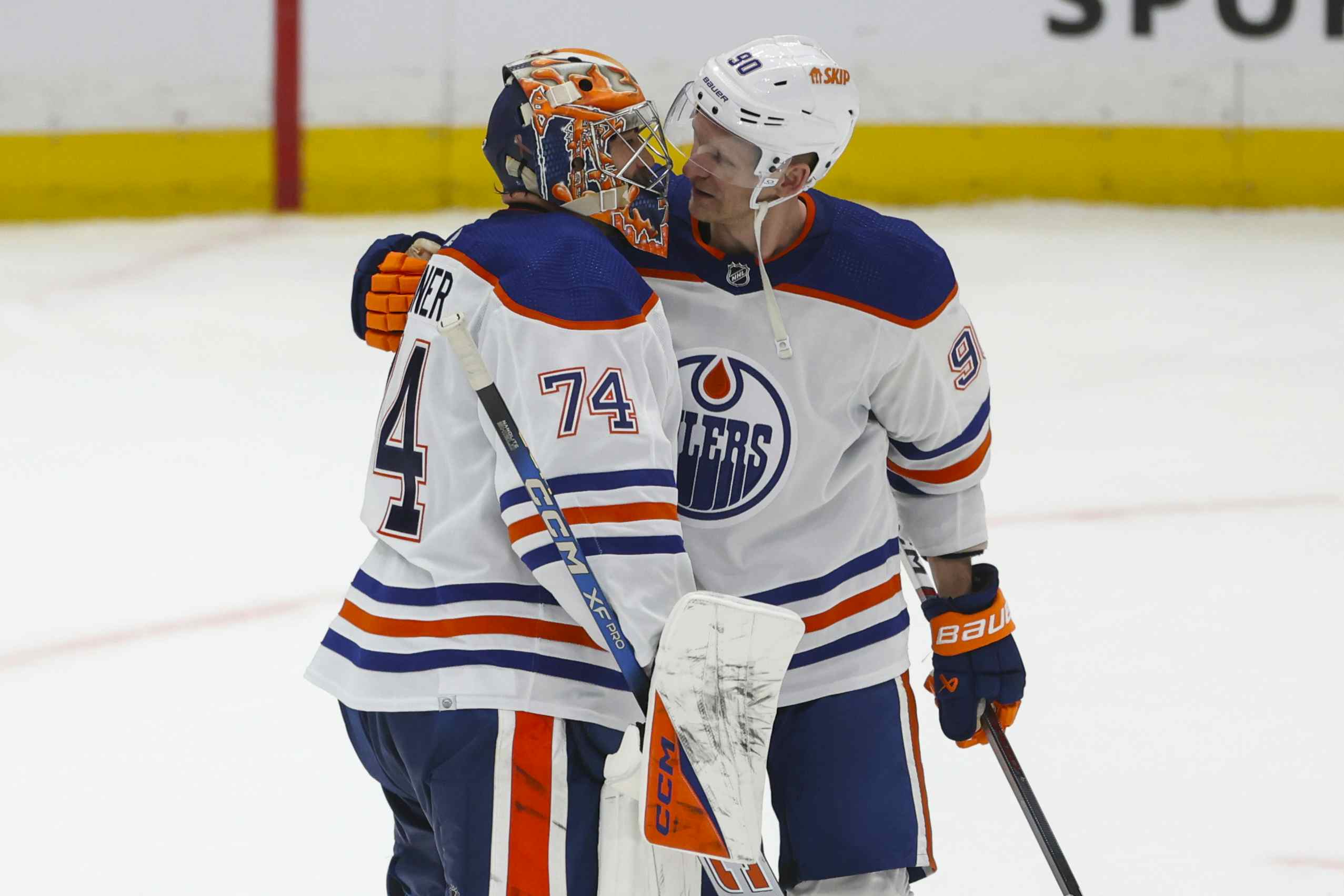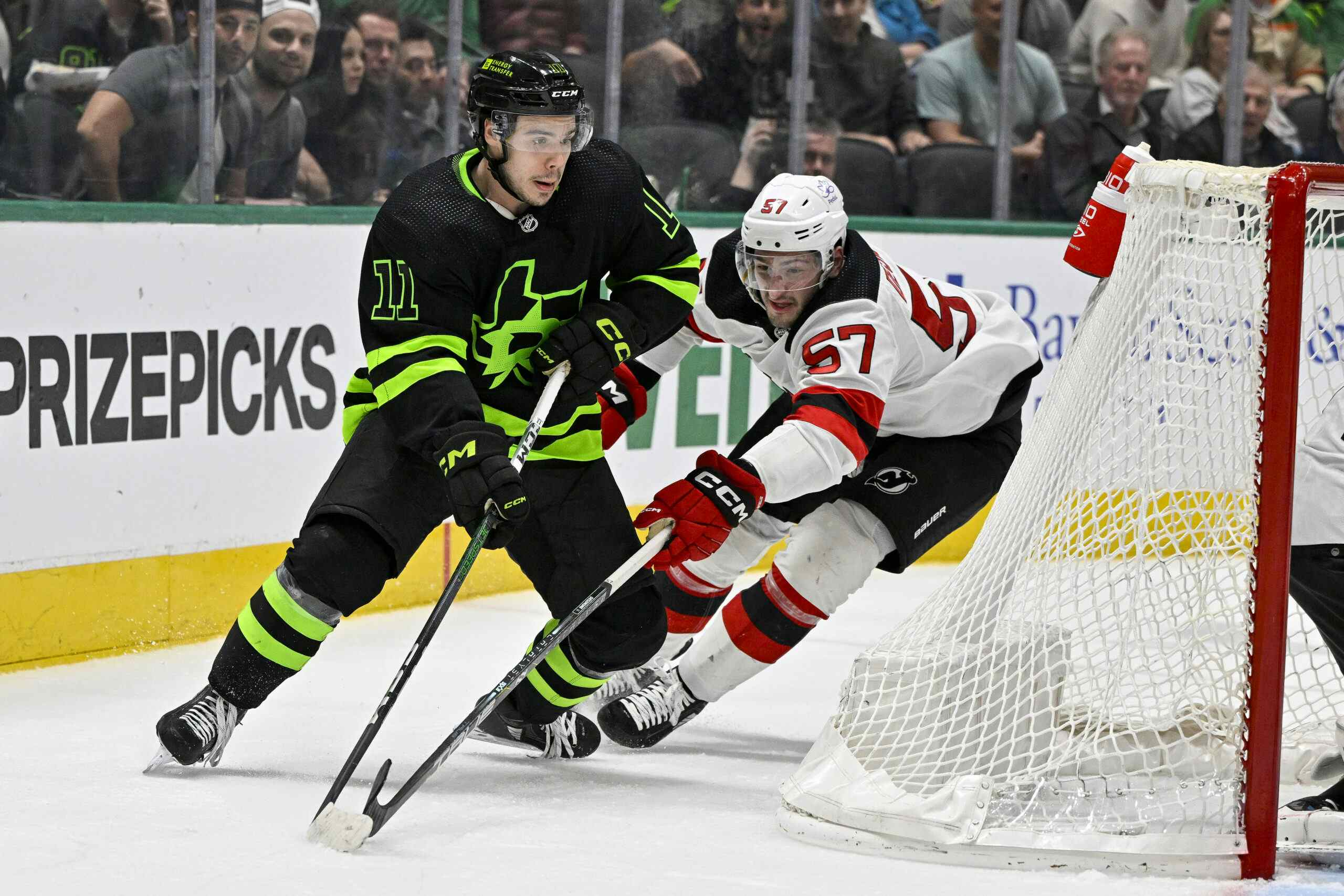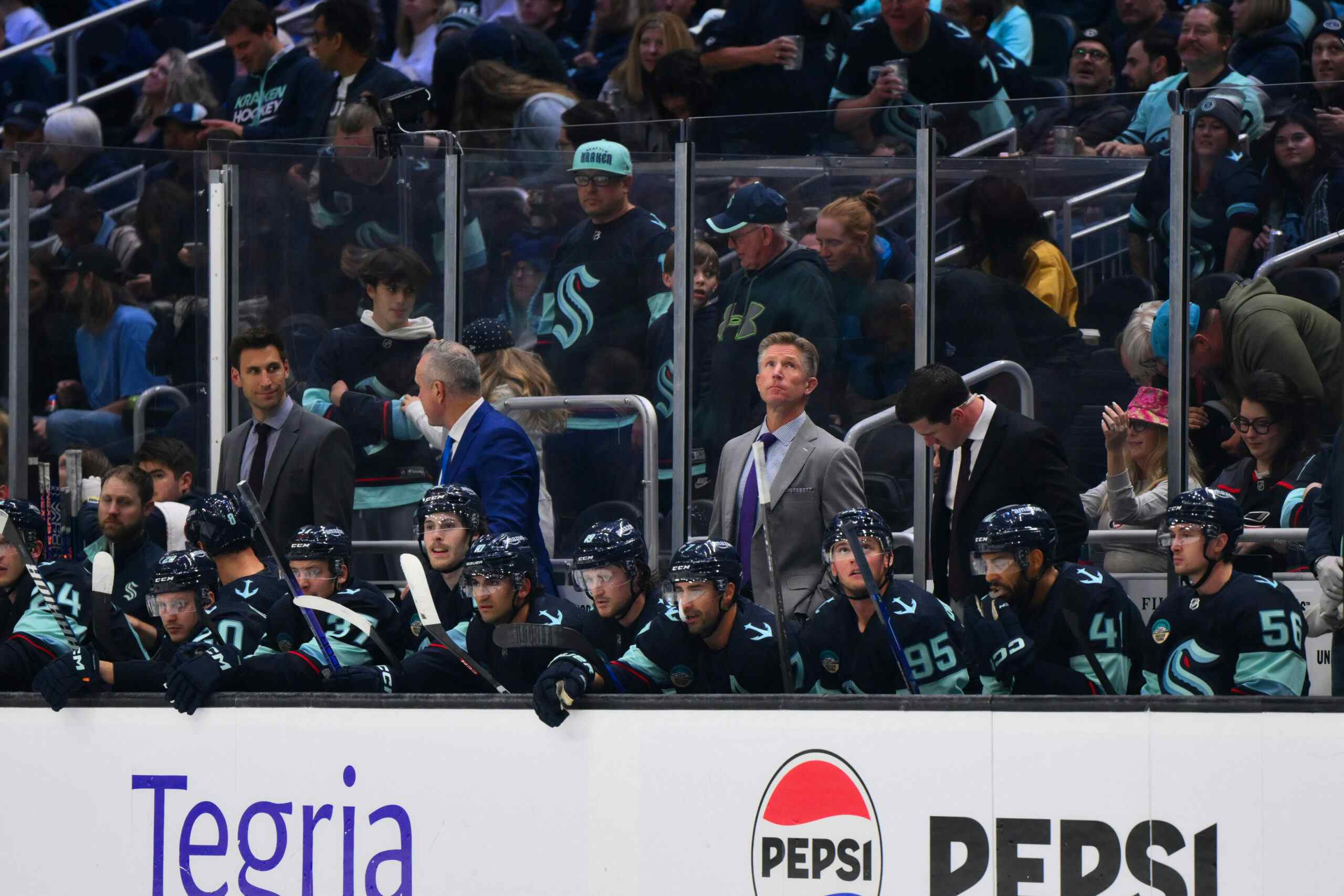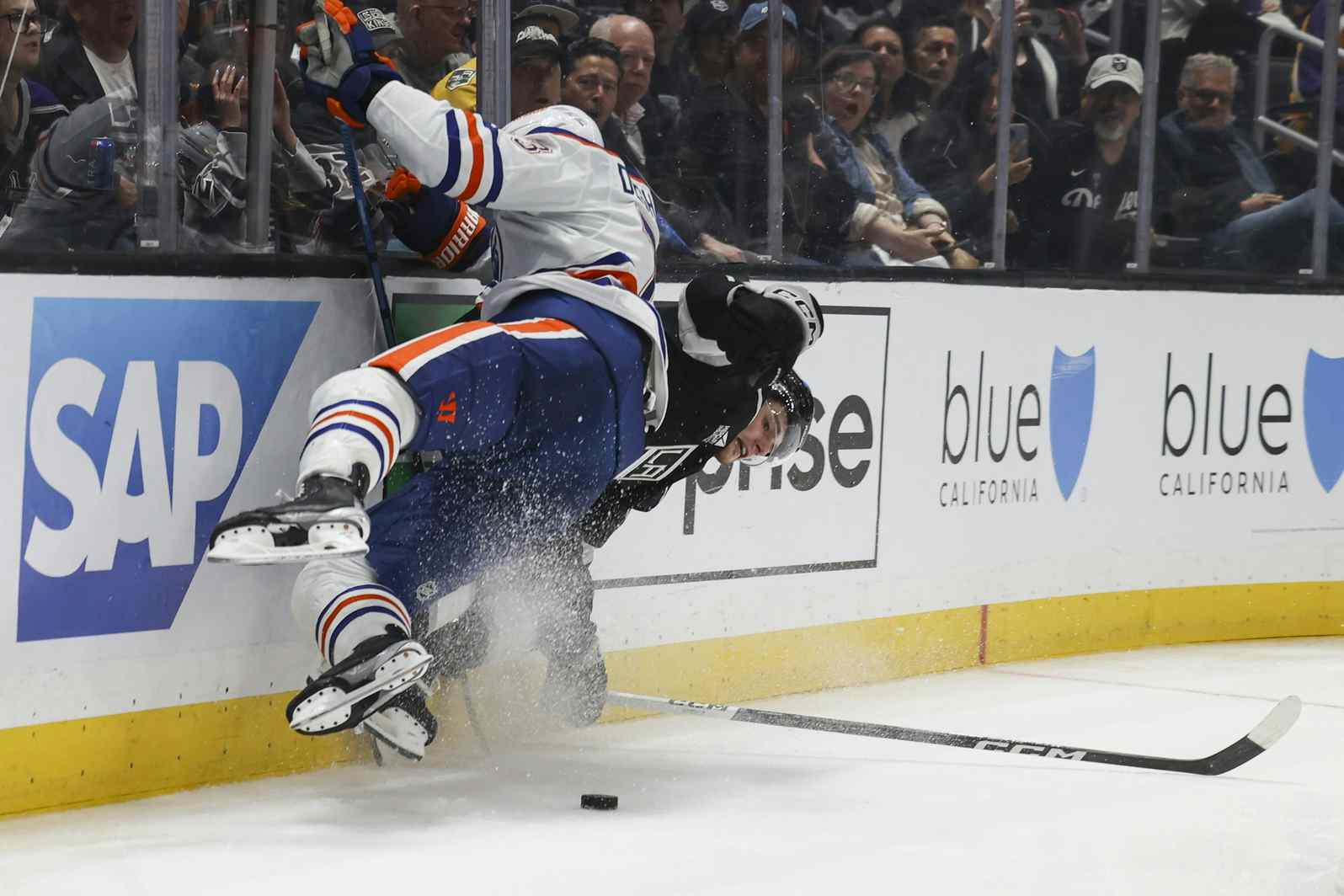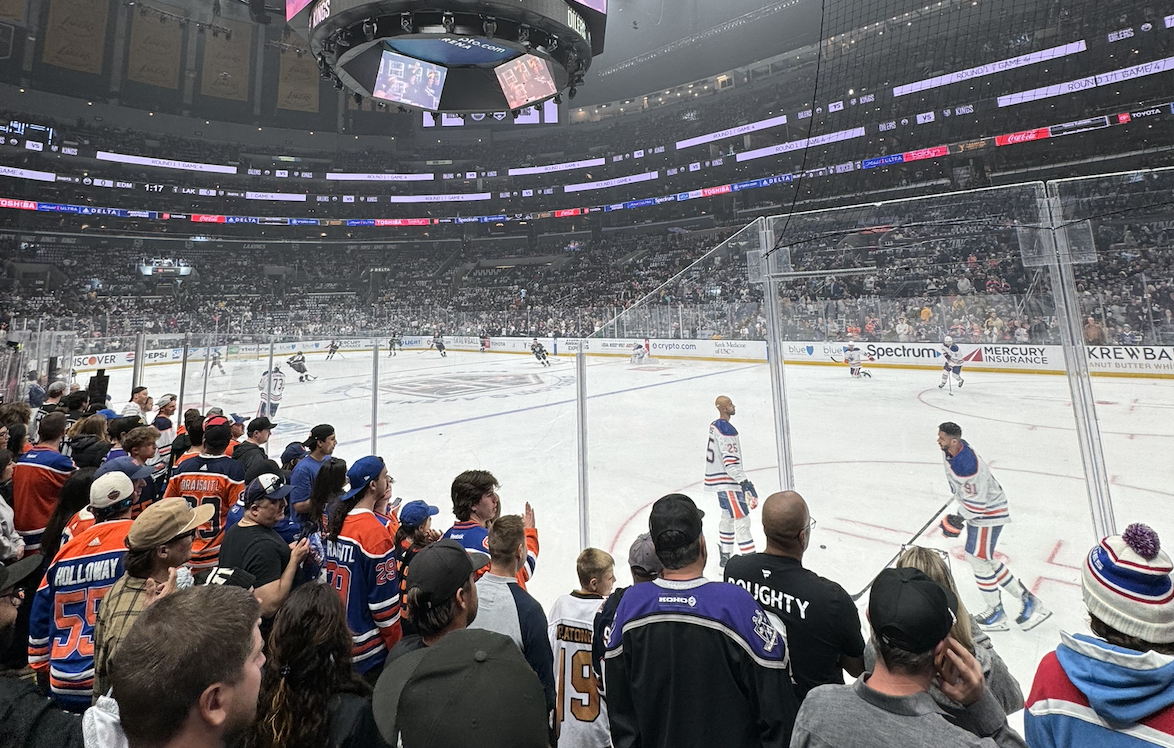Can Edmonton afford to pass on Matt Irwin?
On Sunday, the Boston Bruins waived defenceman Matt Irwin, a mobile, puck-moving, 6’1”, 207 pound defenceman who most recently played under Todd McLellan in San Jose. Can the Oilers afford not to put a claim in?
What He Did in San Jose

Irwin’s always been a pretty fun player to watch, and he has an impressive set of skills which we touched on in the introduction. For the Oilers he’s an interesting player because mobility and passing are extreme weaknesses for almost all of the club’s third-pairing types, and of course because he’s familiar with Todd McLellan’s system.
At evens, Irwin scored 1.1 points/hour last season and 0.81 points/hour on average over his NHL career. For the sake of contrast, the best single season by any full-time Oilers defenceman in the last three years came in 2014-15 from Oscar Klefbom when he scored 0.84 points/hour. At even-strength, Irwin is a point-producer with no parallel on Edmonton’s roster.
On the power play, Irwin has mostly been confined to second unit duty (he played behind Brent Burns and Dan Boyle) but he has scored 3.26 points/hour on average over his career, which isn’t far south of what Justin Schultz has done over the last three seasons. Irwin was on the better power play, but he was also getting scraps of minutes rather than first unit duty.
His on-ice metrics aren’t great or terrible; in a third-pair role he outperformed the team average in terms of scoring chances two out of three years while getting a zone start push. That’s ‘decent third-pair type on a good team’ level play.
Why He’s on Waivers
Irwin was signed to a one-year, $800,000 contract in the off-season to be a third-pairing defenceman with the Bruins, with the potential for him to move up the lineup if his play warranted it. He’s played two games with Boston and the early results have not been great. Let’s look at the goals against that he’s been on the ice for:
- Made a bad turnover behind the net on Winnipeg’s 2-1 goal (as seen above)
- Caught in no man’s land on Winnipeg’s 3-1 goal
- Trapped pinching on Winnipeg’s 4-2 goal, though it was David Krejci got caught with his pants down by Chris Thorburn(!) here
- Part of a defensive mess on Montreal’s 2-0 goal, along with two other Bruins
- Had his clear picked off on Montreal’s 3-0 goal
- On the ice for Montreal’s 4-1 empty-netter
We can argue about the degree to which Irwin was a factor in those goals, but Boston has been out-shot 24-8 over two games when he’s been on the ice and there’s quite a bit of ugly in the videos. The Bruins are 0-2, Irwin is cheap and expendable and so here we are.
The Decision

The Oilers, it seems to me, have three key factors influencing their decision here:
- First: Is there a spot for Irwin? Edmonton has a bunch of third-pairing defencemen at the moment; do they really want to add another?
- Second: How much does Irwin’s work over two games under a new coach for a struggling Boston team weigh into things?
- Third: What does Todd McLellan think of a defenceman who has played almost the entirety of his career for him? Does he feel Irwin would be an asset to Edmonton’s blue line and how would he use him?
We don’t have the luxury of asking McLellan his opinion, but when I look at the Oilers’ options Irwin looks like a pretty perfect fit for that third pair. He can hit the ground running (should the cliché be ‘hit the ice skating?) with a coach and a system with which he’s familiar. His potential partners include Eric Gryba (slow, poor passer), Griffin Reinhart (not fast, not a gifted passer), Andrew Ference (slow, poor passer) and Brandon Davidson (not a gifted passer). The idea of Irwin/Gryba or Irwin/Reinhart on the third pairing is much, much more appealing than last night’s Ference/Gryba tandem.
The trouble is that claiming Irwin will involve making a move, either demoting Reinhart or waiving Davidson or phoning up Chicago to see if they want to take Gryba. In my view it’s worth doing, but I’d understand others, including Peter Chiarelli, being unconvinced.
RECENTLY BY JONATHAN WILLIS
Recent articles from Jonathan Willis

